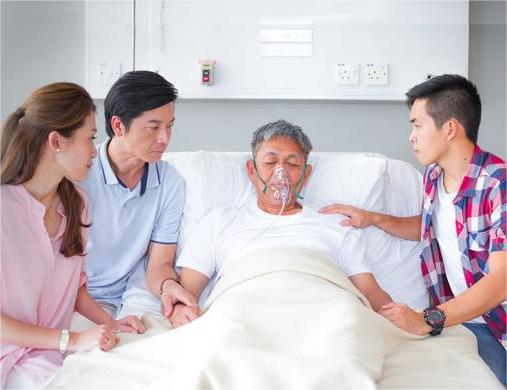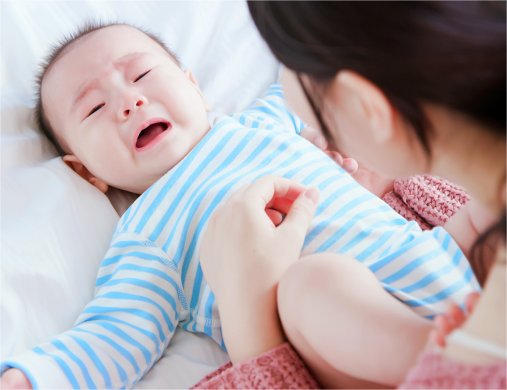What is pneumococcal pneumonia?
Pneumococcal pneumonia is an infectious, potentially serious bacterial lung disease3 you can catch anytime, anywhere.4 It can affect both adults and children.5 In severe cases, it can put you in the hospital3 and even be life-threatening.3
Pneumococcal pneumonia is contagious. It can be passed from person to person.6 You can catch it from a cough or close contact.6
Many people think it is a cold or the flu or COVID-19, but it is not.7,8
Unlike a cold, the flu or COVID-19, which are caused by viruses8,9 pneumococcal pneumonia is caused by bacteria.8,9 Symptoms can be severe4 and hit you without warning.4 In fact, it can take weeks for symptoms to resolve.1^ The cough and fatigue may last for weeks and longer.1^
This video is first published by Mothership on December 6th, 2021.
^ Streptococcus pneumoniae is one of the most common pathogens found in community acquired pneumonia (CAP) 10
COVID-19 = CORONAVIRUS DISEASE 2019
Many people think you get pneumonia in the hospital, but hospitals are not the only places you can catch it.3
In fact, it’s more common to catch pneumonia, including pneumococcal pneumonia, while you are out in the community going about your everyday life.4 For children, it may spread through close contact with other children.5
Pneumococcal pneumonia is a type of pneumonia caused by bacteria, not viruses.6
The most common bacteria that causes pneumococcal pneumonia is called Streptococcus pneumoniae.4
The bacteria can spread from person to person through coughing or close contact.6 When the bacteria get into the lungs, they can cause some of the alveoli (air sacs in the lungs) to become inflamed and fill with mucus.4 This is what causes pneumococcal pneumonia symptoms such as chest pain, coughing, and difficulty breathing.7
^ Streptococcus pneumoniae is one of the most common pathogens found in community acquired pneumonia (CAP) 8
The symptoms of pneumococcal pneumonia can come on suddenly.3 This is the same for both children and adults.3 Symptoms generally include an abrupt onset of fever and chills or breathlesses.3 It can take weeks for symptoms such as tiredness, weakness and shortness of breath to resolve.1^
SYMPTOMS OF PNEUMOCOCCAL PNEUMONIA4
Roll over the graphic to see some of the many ways pneumococcal pneumonia can affect your body.
Tap the graphic to see some of the many ways pneumococcal pneumonia can affect your body.
High fever
Shaking chills
Chest pain
Difficulty in breathing
Phlegmy cough
^ Streptococcus pneumoniae is one of the most common pathogens found in community acquired pneumonia (CAP) 5
Pneumococcal pneumonia can take you or your child out of your daily routine for several weeks.1,3^ In severe cases, it can even put the patient in the hospital.4,5 The average hospital stay is 14 days.5,6 Some are at risk of developing more severe pneumonia or fatal complications.5,6
At 65 or older, the risk of hospitalization with pneumococcal pneumonia is over 6X* greater than adults aged 18–49.9
Children younger than 5 years old are among those most at risk for pneumococcal pneumonia.2
For both adults and children, the impact of the symptoms may be felt for days to months after onset of the illness.1,7^

Part of the lung becomes inflamed and fills up with mucus, causing difficulty in breathing.4,8
*Risk is dependent on individual risk profile. (healthy; adults included those without evidence of any high-risk or at-risk condition, At risk; adults included those who were immunocompetent with 1 or more chronic medical conditions or high risk ; adults included those who were immunocompromised or had a cochlear implant) 9
^ Streptococcus pneumoniae is one of the most common pathogens found in community acquired pneumonia (CAP) 10









